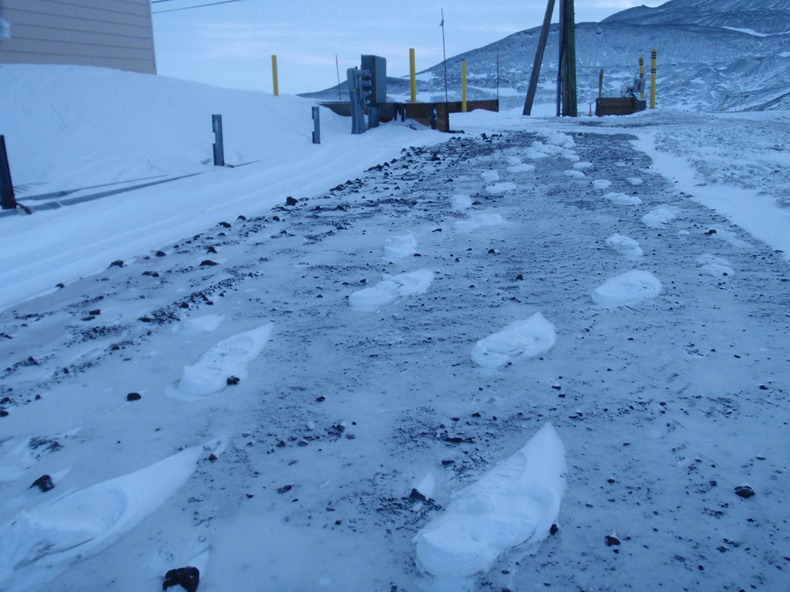In extremely cold places, such as in Antarctica or in high altitudes, sometimes you get to see a peculiar phenomenon – footprints that are raised rather than depressed in the snow. What actually happens is when you step in the snow, the snow gets compressed and hardens, and then the wind blows the loose snow away leaving the once sunken footprints standing hard and proud on the surface. Eventually, the hardened snow gets eroded as well, but it takes weeks or even months. Raised snow footprints can last quite a while before all traces of the footprints are eroded away.
Because it requires more than a gale to blow away snow, raised footprints are often taken as an indicator of windslab and in mountain slopes, as potential avalanche danger. This is why you won’t see raised footprints in your backyard, unless you live in McMurdo.
Raised footprints on the summit of Blencathra, England. Photo credit
Raised footprint in Snowdonia, north Wales. Photo credit
Raised footprint near McMurdo Station. Photo credit
Raised footprint near McMurdo Station. Photo credit
Raised footprint near McMurdo Station. Photo credit

Raised footprint near McMurdo Station. Photo credit
Raised footprint near McMurdo Station. Photo credit
Raised footprint near McMurdo Station. Photo credit
Raised dog footprints in Antarctica. Photo credit
Raised footprints in Anie, Stirling, Great Britain. Photo credit
Raised footprints on Foulshiels Hill, Great Britain. Photo credit
Raised footprints on Bear Mountain, Alaska. Photo credit

























Comments
Post a Comment